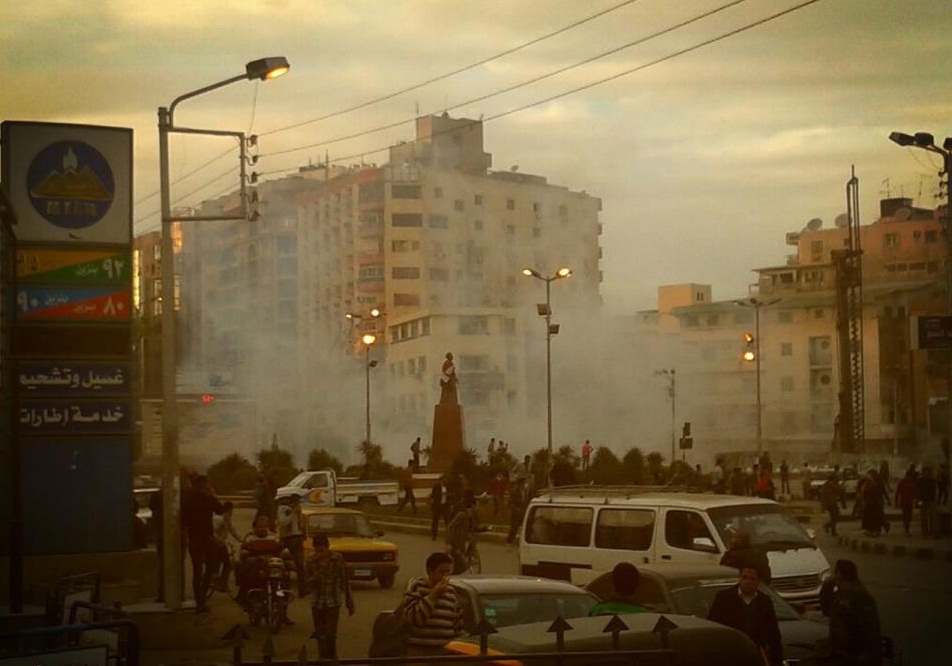JERUSALEM: A diplomatic row threatened to erupt between Israel and Egypt on Monday over claims that an Israeli unit had killed Egyptian prisoners of war during the 1967 Arab-Israeli war. The claims, aired in a public television documentary in Israel, have been vehemently denied by the unit commander Benjamin Ben-Eliezer, now national infrastructure minister. But they have raised a storm of controversy in Egypt, where the affair has dominated the front pages for two days, sparked an angry debate in parliament, and led the foreign ministry to summon the Israeli ambassador in Cairo. A Massacre thundered Egypt s mass-selling state-owned Al-Ahram newspaper. The affair is in the process of becoming a major diplomatic incident, a senior Israeli official told AFP on condition of anoymity. The relations between the two countries are compromised.
The row forced Ben-Eliezer on Monday to cancel a planned visit to Cairo this week, where he was due to discuss Israeli natural gas imports from Egypt, one of only two Arab countries to have signed a peace treaty with the Jewish state. Following unfounded information published in Egypt on this affair and the current atmosphere not being favorable, the two parties decided to postpone to another date Ben-Eliezer s visit, his press advisor Moshe Ronen told AFP. The Shaked Spirit documentary which aired a week ago claimed that the unit commanded by Ben-Eliezer during the June Six-Day war had killed 250 Egyptian PoWs in the El-Arish area of the Sinai peninsula. On Sunday Ben-Eliezer – a Labour party minister, a reserve general and former defence minister – denied the charges, saying his unit had killed Palestinian fighters in combat, not PoWs. In fact, in one clash during this war, soldiers of a battalion of Palestinian Fedayeen operating from the Gaza Strip against Israel, particularly against the unit I commanded, were killed, Ben-Eliezer said in a statement. These soldiers were not executed as it was said, they were killed in combat. Maybe the confusion is due to the fact that two days before this incident, the Shaked commando came across an Egyptian battalion that had stopped fighting, and men from the unit helped them by providing food and water, it said. But the denial has done little to ease Egyptian ire and on Sunday the foreign ministry summoned Israeli ambassador Shalom Cohen to protest and called for clarification on the events. Egypt asked Cohen to convey its concerns to Israel of the consequences in neglecting this event, the need to investigate the matter in the light of new information and witness statements which were exposed during the documentary, and presenting the accused before the courts.
In Egypt, lawmakers on Sunday demanded the expulsion of the Israeli ambassador and the freezing of the Camp David accord which paved the way for the 1979 peace treaty, as well as other deals with Israel. During the stormy parliamentary session, foreign affairs committee chairman Mustafa Al-Fekki called for a trial at the International Criminal Court in The Hague over the Israeli crimes . It is not the first time such claims have been raised. In 1995, an Israeli military researcher, Aryeh Yitzhaki, said that up to 300 Egyptian and Palestinian soldiers were killed by Ben-Eliezer s unit after laying down their arms. To justify themselves, the soldiers pretended that the prisoners of war had launched grenades after their capture, Yitzhaki told Israeli radio at the time. Ben-Eliezer at the time said he was not aware of any PoW killings by his troops, saying the enemy suffered very severe losses during fighting with a Palestinian batallion near El-Arish airport.
Although Egypt was the first Arab state to sign a peace treaty with Israel in 1979 the normalization of ties with the Jewish state remains unpopular with most Egyptians.
